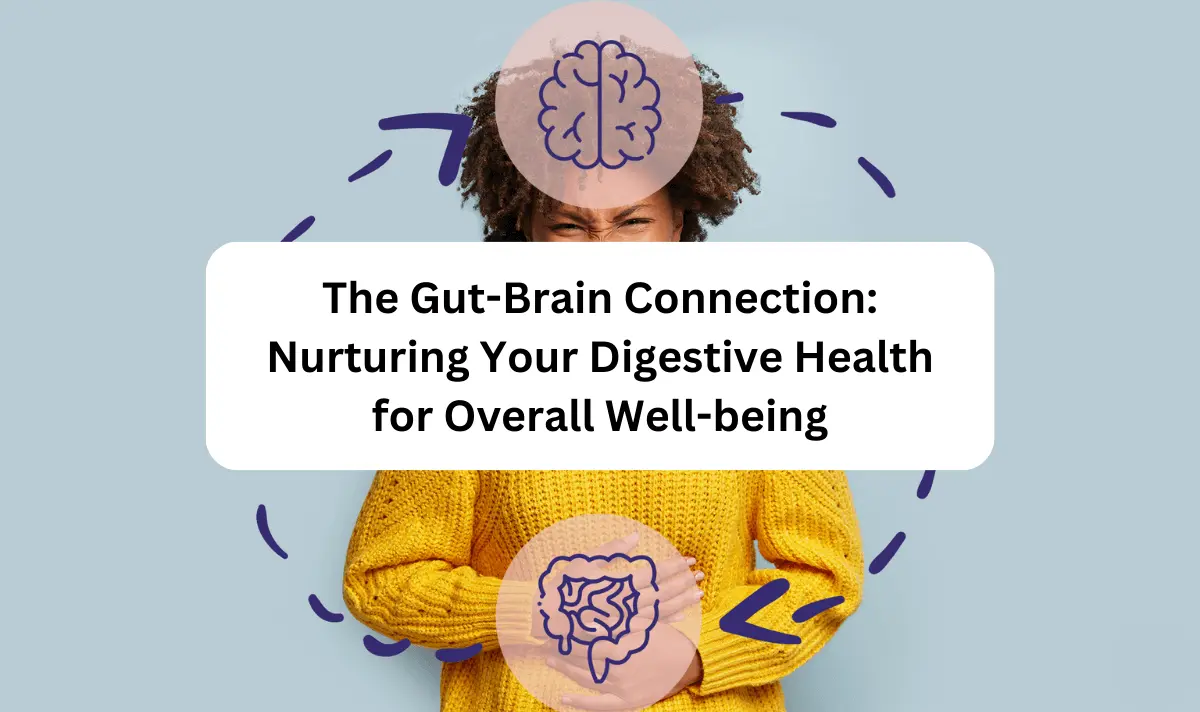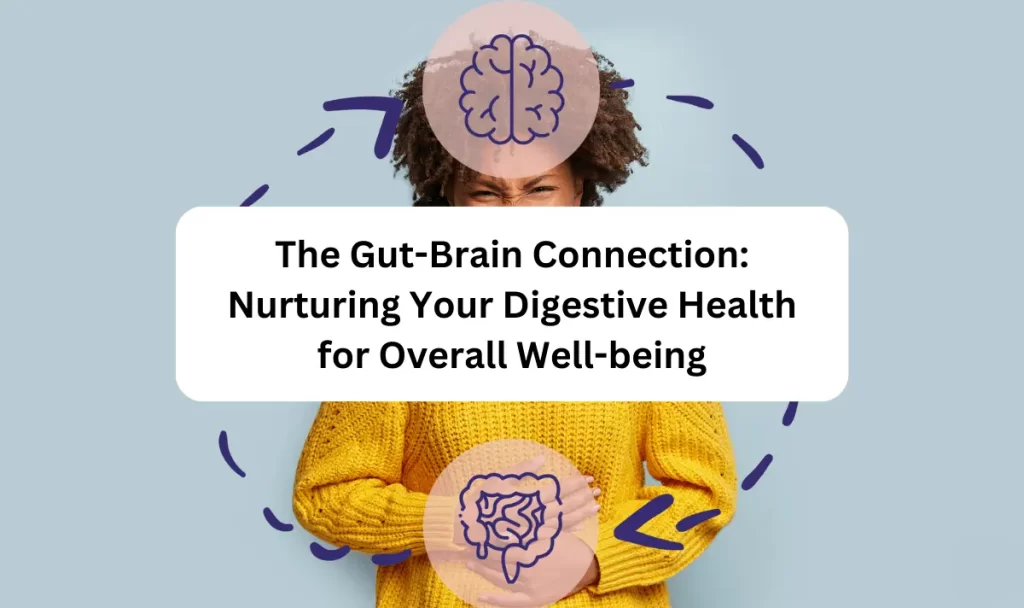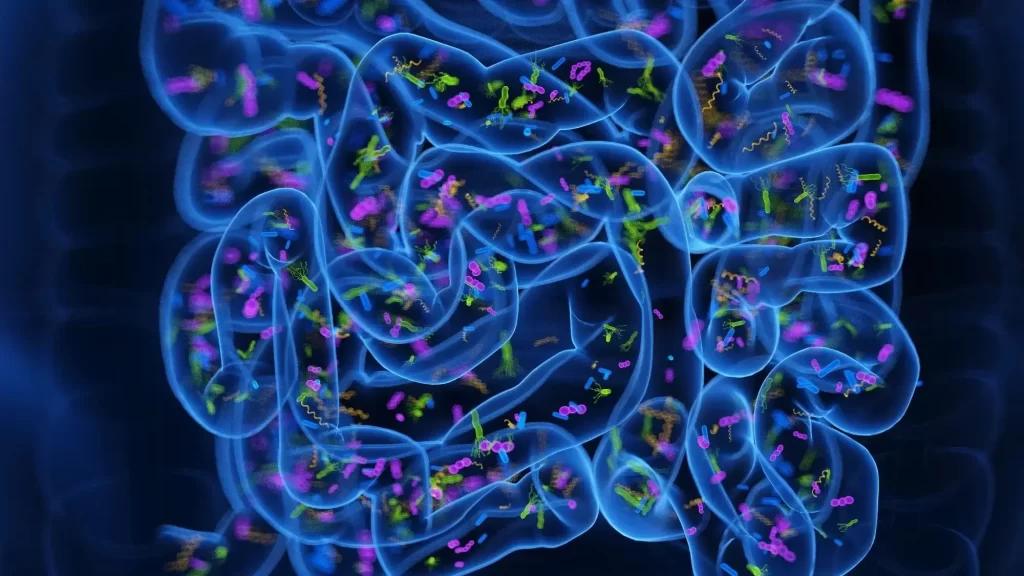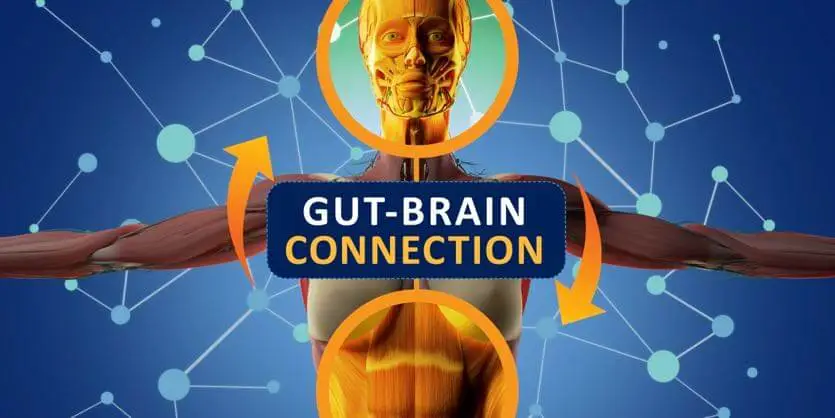
The Gut-Brain Connection: Nurturing Your Digestive Health for Overall Well-being
October 18, 2023

Did you know that there is a strong link between your gut and your brain? It’s called the gut-brain connection, and it plays a crucial role in your overall well-being. Your digestive system does more than just break down food; it communicates with your brain and affects your mood, emotions, and even cognitive function. In this article, we will explore the fascinating connection between your gut and brain and learn how you can nurture your digestive health for improved overall well-being.
Further reading suggestion for you: The Healing Power of Nature – Exploring the Benefits of Outdoor Activities
Content
Introduction
The gut-brain connection refers to the bidirectional communication between your gut and brain. This connection is facilitated by the enteric nervous system, which is a complex network of nerves that governs your digestive system. Recent research has shown that the gut has its own independent nervous system, often referred to as the “second brain.” This intricate network of neurons, neurotransmitters, and chemicals allows your gut and brain to communicate with each other.
Understanding the Gut-Brain Connection
The gut and brain are constantly sending signals back and forth through the vagus nerve, a major nerve that connects the two. This communication pathway plays a vital role in regulating various bodily functions, including digestion, appetite, and mood. When your gut is healthy, the messages it sends to your brain are positive, leading to improved overall well-being. However, when there is an imbalance in the gut, it can have a negative impact on your mental and physical health.
The Role of the Microbiome

The gut is home to trillions of bacteria, fungi, and other microorganisms collectively known as the gut microbiome. These tiny organisms play a crucial role in maintaining gut health and influencing the gut-brain connection. The microbiome helps break down food, produces essential nutrients, and even influences neurotransmitter production. A healthy and diverse microbiome is associated with better mental health, while an imbalance in the microbiome has been linked to conditions such as depression, anxiety, and even neurodegenerative diseases.
Gut Health and Mental Health
Several studies have highlighted the strong correlation between gut health and mental health. Conditions such as irritable bowel syndrome (IBS), inflammatory bowel disease (IBD), and leaky gut syndrome have been linked to an increased risk of developing mental health disorders. The gut-brain connection suggests that improving gut health can have a positive impact on mental well-being. By nurturing your digestive system, you can potentially reduce the risk of mental health issues and improve your overall quality of life.
Nutrition for a Healthy Gut
The food you eat plays a significant role in maintaining a healthy gut. A diet rich in fiber, whole grains, fruits, and vegetables provides essential nutrients for your gut microbiome. These foods promote the growth of beneficial bacteria and help maintain a diverse microbiome. On the other hand, a diet high in processed foods, sugar, and unhealthy fats can disrupt the balance of your gut microbiome and contribute to gut inflammation. Opting for a balanced and nutritious diet is essential for nurturing your digestive health.
The Impact of Stress on Gut Health
Stress can wreak havoc on your gut health. When you’re stressed, your body releases stress hormones that can affect the balance of bacteria in your gut. This can lead to digestive issues such as bloating, diarrhea, or constipation. Chronic stress has been associated with an increased risk of developing gut disorders and can exacerbate existing digestive conditions. Managing stress through relaxation techniques, exercise, and self-care practices is vital for maintaining a healthy gut-brain connection.
Lifestyle Factors and Digestive Well-being
Aside from nutrition and stress, other lifestyle factors also influence your digestive well-being. Smoking, excessive alcohol consumption, and lack of physical activity can negatively impact your gut health. Quitting smoking, moderating alcohol intake, and engaging in regular exercise can significantly improve your digestive health. Additionally, practicing good hygiene, such as washing hands regularly and avoiding contaminated food, reduces the risk of infections and supports a healthy gut.
Exercise and Gut Health

Regular exercise not only benefits your physical fitness but also plays a role in promoting a healthy gut. Exercise stimulates the contractions of your intestinal muscles, aiding in proper digestion and preventing constipation. It also helps regulate the gut microbiome, promoting the growth of beneficial bacteria. Incorporating moderate exercise into your routine, such as walking, swimming, or cycling, can contribute to a thriving gut-brain connection.
Sleep and Digestion
Quality sleep is essential for overall well-being, including digestive health. During sleep, your body repairs and rejuvenates, and this includes your digestive system. Lack of sleep can disrupt the gut microbiome, increase inflammation, and impair digestion. Aim for 7-9 hours of uninterrupted sleep each night to support optimal gut health and ensure your brain and gut can communicate effectively.
Natural Remedies for Digestive Issues
If you experience occasional digestive issues, there are several natural remedies you can try. Peppermint oil, ginger, chamomile, and fennel are known for their soothing properties and can help alleviate symptoms like bloating, indigestion, and abdominal discomfort. However, it’s important to consult with a healthcare professional before trying any new remedies, especially if you have an underlying medical condition.
Probiotics and Prebiotics
Probiotics are beneficial bacteria that can be found in certain foods or taken as supplements. They help restore and maintain a healthy balance of bacteria in the gut. Prebiotics, on the other hand, are fibers that serve as food for the beneficial bacteria in your gut. Incorporating probiotic-rich foods like yogurt, sauerkraut, and kefir, as well as prebiotic-rich foods like bananas, garlic, and onions, can support a thriving gut microbiome.
Gut-Brain Axis: A Two-Way Street

The gut-brain connection works in both directions. Just as the gut influences the brain, the brain can also affect the gut. Psychological factors such as anxiety, depression, and chronic stress can disrupt the gut microbiome and lead to gastrointestinal symptoms. Taking care of your mental health through therapy, mindfulness practices, and stress management techniques can positively impact your gut and overall well-being.
Mindful Eating for a Healthy Gut
Practicing mindful eating is a powerful way to support your gut-brain connection. Mindful eating involves paying attention to your body’s hunger and fullness cues, eating slowly, and savoring each bite. It helps you develop a healthier relationship with food, reduces overeating, and improves digestion. By being present and aware during mealtimes, you can nurture your digestive health and enhance the connection between your gutand brain.
Gut Health and Immune System
Did you know that a significant portion of your immune system resides in your gut? A healthy gut is essential for a robust immune system. The gut acts as a barrier, preventing harmful substances and pathogens from entering the bloodstream. It also houses immune cells that help fight off infections and maintain overall immune function. By prioritizing your gut health, you can support a strong immune system and reduce the risk of illnesses.
Conclusion
The gut-brain connection is a fascinating aspect of human biology that highlights the intricate relationship between our digestive system and our mental well-being. Nurturing your digestive health through proper nutrition, stress management, regular exercise, and adequate sleep can positively impact your overall well-being. Remember to prioritize a balanced diet, incorporate natural remedies when needed, and practice mindful eating to support a healthy gut-brain connection. By taking care of your gut, you’re taking care of your entire body and mind.
How long does it take to improve gut health?
Improving gut health is a gradual process that varies from person to person. It can take weeks or even months to see significant improvements. Consistency is key, so stick to a healthy lifestyle and be patient with the results.
Can gut health affect weight management?
Yes, gut health can influence weight management. An imbalance in the gut microbiome has been associated with weight gain and obesity. By maintaining a healthy gut, you can support a healthy weight.
Are probiotic supplements necessary for a healthy gut?
While probiotic supplements can be beneficial, they’re not necessary for everyone. A balanced diet rich in probiotic and prebiotic foods can often provide sufficient support for a healthy gut. Consult with a healthcare professional to determine if probiotic supplements are right for you.
Can stress impact gut health even if I have a healthy diet?
Yes, stress can still impact gut health even if you have a healthy diet. Chronic stress can disrupt the balance of bacteria in your gut and lead to digestive issues. Managing stress through relaxation techniques and self-care practices is crucial for maintaining a healthy gut-brain connection.
How can I incorporate more fiber into my diet for better gut health?
To incorporate more fiber into your diet, focus on consuming whole grains, fruits, vegetables, legumes, and nuts. These foods are rich in dietary fiber and can promote a healthy gut by supporting regular bowel movements and feeding beneficial gut bacteria.

Cathy Webb is a health blog author who has been writing about healthy living since 2024. She started her journey by adopting a vegan diet and eating only organic foods, but the more she learned, the more she realized that we should all be eating plant-based diets exclusively. As an expert in nutrition and wellness, Cathy blogs to educate readers on how they can live happier and healthier lives through food choices!



















